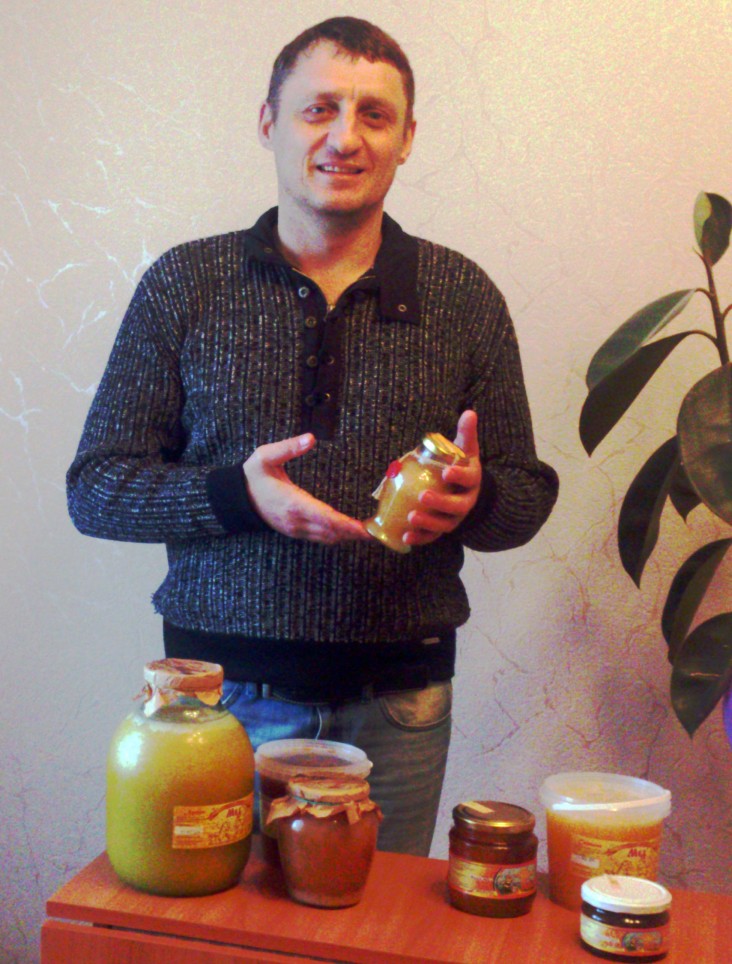
March 2015—Ukrainian honey producers were on the verge of expanding into new markets when their plans came to a sudden halt due to political developments. But that’s not stopping the forward motion of the determined venturists.
The Golden Bee Cooperative, founded in 2008 to unite local beekeeping households in the Pervomayske region of the Autonomous Republic of Crimea, had a seemingly bright future after years of steady growth. Members were excited about the prospect of exporting honey to Western European markets under the touted European Union Association Agreement and its corresponding Deep and Comprehensive Free Trade Agreement, which the Government of Ukraine announced plans to sign in November 2013.
But to the dismay of many Ukrainians, including the members of the cooperative, the government, at the last minute, reneged on its commitment to sign the agreement.
In fall 2013, USAID, through its AgroInvest project, had helped the cooperative strengthen its internal administrative processes and provided a grant to modernize Golden Bee’s processing and packaging equipment line. At that time, the cooperative comprised 31 members, collecting and processing over 100 tons of honey per year.
But all progress seemed lost the day Russia annexed Crimea in March 2014.
“The situation changed dramatically overnight, and I could not agree with the annexation of Crimea by Russia,” explained Mykola Polytsky, head of the Golden Bee Cooperative, as he remembered the ensuing protests that spread across Ukraine. The protests marked the onset of conflict in eastern Ukraine and the ouster of the corrupt regime of former President Viktor Yanukovych.
The cooperative members determined that they could not operate in a Russian-controlled Crimea, so Golden Bee again turned to USAID for help in relocating the cooperative elsewhere in Ukraine. The best location identified was the village of Sivka-Kaluska in Ivano-Frankivsk oblast. AgroInvest worked closely with the cooperative and local Ivano-Frankivsk authorities to streamline the local registration process for the renamed “Little Golden Bee.”
“Of course, members of our co-op found themselves in a difficult situation. After all, we had to move from our homes and away from established farms,” said Polytsky. “But thanks to USAID support, we managed to re-establish our co-op, keep our equipment, and continue to provide services to member beekeepers. Today we want to create the first Ukrainian cooperative complex providing a full range of services to beekeepers, from equipment supply, pre-sale preparation and sale itself. We also want to develop a training center. We are confident that our plans will be fulfilled.”
Not only did all members of the former Crimean Golden Bee Cooperative remain members of the new Little Golden Bee Cooperative, but 11 new local honey producers joined the cooperative soon after it settled into its new location.
With Little Golden Bee on secure Ukrainian soil, its plans to expand to the EU market are now back on track as well. In November 2014, Polytsky participated in a study tour to Apipol, Poland, supported by AgroInvest, during which he heard about the latest honey packaging technology, pre-sale preparations and quality control protocols. He also established additional business contacts, bringing his dream closer to reality than ever before.
AgroInvest, which runs from 2011 to 2016, provides assistance to Ukraine's agriculture sector to help accelerate the country's economic recovery and increase its contribution to global food security.
LINKS
Follow @USAIDUkraine, on Facebook







Comment
Make a general inquiry or suggest an improvement.